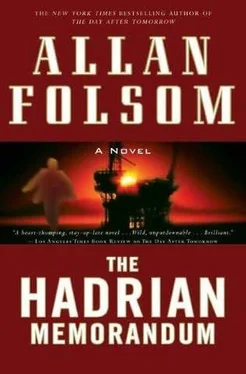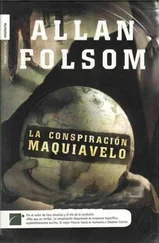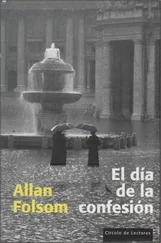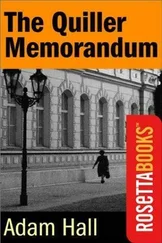FOUR SEASONS HOTEL RITZ. 9:30 A.M.
Branco opened the door to Ryder’s seventh-floor suite, and the entourage entered. Birns and Grant went in first, giving the elegantly appointed quarters careful inspection. They would find nothing out of the ordinary. The suite had been electronically swept and cleared by the Lisbon RSO detail more than two hours earlier. Everything was clean. Perfect. Everything except for the tiny listening devices Branco had installed himself when he’d come there alone at six fifteen, bugging the landline telephones and Internet connections, devices he’d deliberately kept the Lisbon RSO people from finding then and kept Birns and Grant from discovering now. Ryder’s personal cell phone activity and that of Birns and Grant had been meticulously monitored by a private communications contractor CIA COS Moyer had employed from the moment the congressman’s plane entered the Lisbon cell phone grid.
Their inspection completed, Birns nodded to Ryder, who in turn looked to Branco.
“Thank you. I want you to know we appreciate the special attention.”
“We enjoy our work, sir.” Branco smiled.
“I know you do. Now, I’m going to work out some travel fatigue with a quick swim in the hotel pool, then come back to the room and attend to some business. I’ll need a car about eleven thirty. I’m having lunch with an old friend.”
“Where, sir?”
“Café Hitchcock. In the Alfama district. You know it?”
“Yes, sir. It’s less than a ten-minute drive from here.”
“Thank you, Agent Da Costa.”
“The pleasure is ours, sir.”
With that Branco left, taking his two Lisbon RSO agents with him.
Ryder watched the door close behind them, then looked to Grant and Birns, who were booked into the connecting room. “I’m going down to the pool. Get yourselves settled, then come down to meet me.”
“Best you wait for us, sir,” Grant said. “We’ll escort you.”
“This is the Ritz, fellas, not a bunker in Iraq. But thanks, I’ll wait.”
“Give us a couple of minutes.”
With that they opened the door and went into the adjoining room.
Ryder took a breath and walked over to the window to look out over the city’s Eduardo VII Park, and the Marquês de Pombal roundabout at the top of the Avenida da Liberdade at the edge of it. Every tree and blade of grass sparkled joyfully in the morning sun, making the city itself, despite the circumstances at hand, seem clean and wonderfully refreshed from the rain of the night before.
President Harris had reached him just before his plane entered Lisbon airspace. The first thing he’d asked was if Ryder completely trusted his own RSO detail, to which he’d answered in the affirmative. The second was not a question but a warning: Trust no one from the Lisbon embassy. Assume your movements are being watched, that your room is bugged and all of your phones monitored, cells included. Then:
“Do not try to contact Marten. You’ll have to take your own RSO people into your confidence and just hope to hell they’re not professionally, psychologically, or in any other way beholden to the RSO/Lisbon people. You will need to get out of your hotel quickly and unseen. Your people should be able to help you do it. Now,” he said, “write this down,” and Ryder had.
“You are to meet Marten and Anne Tidrow at the Hospital da Universidade, University Hospital, 25 Rua Serpa Pinto at eleven local time. Come in the rear entrance. A large, balding man named Mário Gama, the hospital’s director of security, will be behind the desk. Introduce yourself as John Ferguson of the American Insurance Company and say you are there to meet Catarina Silva, the accounts receivable director. He’ll take you to where Marten and Anne are. At eleven fifteen a laundry truck will meet the three of you and your RSO detail outside the same entrance you came in. Go directly to the airport, get on your plane, and get the hell out of there.” The president had been emphatic, the tenor of his voice emphasizing both the danger and the significance of what they were attempting.
“Anne and Marten will be carrying very important information, so the whole thing, once you meet them, has to be bang, bang, bang. If you run into trouble and can’t make it on time, Marten will wait until eleven thirty. If you don’t show up, if it doesn’t work at all, then repeat everything at the exact same time tomorrow. Lastly, tell the embassy RSO people you’re meeting an old friend for lunch and that you will need a car at eleven thirty. The place is the Café Hitchcock in the Alfama district. It’s well away from the area where the hospital is. That will have them thinking you’re staying in your room until then, and they’ll stand down, for a little while anyway, which hopefully will be long enough for you to get out of the hotel and to Marten.”
With that he’d wished him well and signed off quickly. He’d sounded like he felt he’d already spoken too long and was worried-calling as he had at nearly three o’clock in the morning Washington time-that someone from his Secret Service detail would come into his room to make certain he was alright and then set a wave of gossip rolling with speculation about who he had been talking to and why.
“Ready to go down to the pool, sir?” Agent Grant stood in the doorway to the adjoining room.
“You bet. Right now.”
9:37 A.M.
9:40 A.M.
Hunched over, flashlight beam focused in front of them, the Glock automatic in his waistband, Marten led Anne down a dark, narrow, low-ceilinged, cobweb-filled brick-and-mortar passageway that led from the basement of the building at 17 Rua do Almada to that of the building next door. It was a corridor that, theoretically at least, would continue on to the building after that and the one after that, ending finally in the basement at number 9, the last edifice on the block, which was at the far end of the park and a good fifty yards down from where the lookouts were stationed.
These long-unused connecting passageways had been built during World War II, when a neutral Portugal became a temporary haven for Jewish refugees fleeing Central Europe and Lisbon was a major transit point for exit to the United States. Sections of the Baixa, Chiado, and Bairro Alto districts with their close proximity to the harbor were favorites not only of the refugees but of Nazi spies commanded to report their movements and the names and destinations of the ships they boarded. As a result, the owners of many buildings like those on Rua do Almada built secret, interconnecting subterranean corridors through, and sometimes under, the buildings’ cellars in order to help smuggle people unnoticed to waiting ships in the attempt to keep the transit lines open and create as little political turbulence for Portugal as possible.
Anne and Marten were attempting much the same thing now. Only their destination was not a ship on the waterfront but an electrician’s van parked at the end of the block. With luck, and if the passageways were still navigable after nearly seventy years of nonuse, and if they left the building at number 9 and climbed unseen into the van Raisa had waiting, they should arrive at Hospital da Universidade on Rua Serpa Pinto after a reasonably short ride and pretty much on time.
That Raisa had been able to put the entire rescue plan together so quickly was a marvel in itself. She had taken Marten’s call at seven fifteen. At seven eighteen she was in the top-floor apartment dressed in the rose-colored bathrobe and slippers she’d worn the night before and listening carefully to what Marten had to say, knowing all the while that with Anne present he would have to find a way to let her know what was happening and what needed to be done without referring to President Harris by name or office.
Читать дальше












